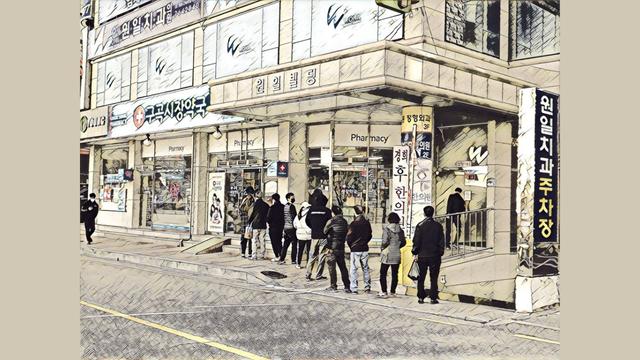Other groups have been more successful than religious liberty advocates in fighting discrimination. This should change.
by Massimo Introvigne*
*A paper presented at the webinar “Zero Discrimination for Tai Ji Men,” co-organized by CESNUR and Human Rights Without Frontiers on March 1, 2023, United Nations Zero Discrimination Day.

United Nations days of observance are in the calendar because somebody proposed them. Zero Discrimination Day was promoted by LGBT organizations and others living with HIV/AIDS who felt discriminated. UN days then take a life of their own, and Zero Discrimination Day has been in recent years the opportunity to advocate for a variety of causes.
I would like to return, however, to the original connection between Zero Discrimination Day and the rights of homosexual persons not to be discriminated or, worse, beaten and killed. These rights should be reaffirmed today, when violence against homosexual persons is becoming systematic in two countries that have an abysmally low human rights record in general, Russia and Iran.
I admire the capability of the LGBT community to mobilize when their rights are violated in one country. There is no doubt that they were successful in making their case heard internationally. We who work in the field of freedom of religious or belief should both learn from them and candidly acknowledge that we have been somewhat less successful. I will illustrate it with an example from South Korea.
In 2020, two South Korean scholars, Joseph Yi and Lee Wondong, analyzed the “pandemic nationalism” that developed in their country and led the “government to infringing on the civil liberties” and to massive “human right violations.” While the government’s successes in handling the pandemic were initially praised by international media, this “praise of the South Korean model noticeably subsided in May 2020,” replaced by an increasing number of articles on its human rights cost.
What happened in May 2020 was that an important cluster of COVID-19
infections was discovered in the area of Itaewon, in Seoul, which hosts bars and saunas for gay men. This led the health authorities to a second attempt to gather names and addresses of members of a community, after the first one that had involved Shincheonji, a new religious movement that has been accused of “spreading the plague” after a misdiagnosed member had infected many co-religionists. This time, the male gay community in Seoul was targeted. Some media and politicians published derogatory remarks depicting homosexuals as ignoring preventive measures against COVID. Just as in the case of Shincheonji, the accusations were false. Later Korean judges up to the Supreme Court found Shincheonji not guilty of any COVID-related violation and even praised the anti-COVID measures it had taken.
Yi and Lee find similarities as well as differences in the COVID-related “rights violations” involving respectively Shincheonji and the LGBT community in Seoul. In both cases, “unconventional religious or sexual minorities” were targeted, connecting COVID-19 with what was depicted as “immoral behavior that defied the national interest.” However, the LGBT community was able to quickly mobilize international human rights groups, which persuaded foreign governments to protest and the South Korean authorities (although not some local media) to back off. By contrast, Shincheonji remained “the most vilified group during the pandemic.” As Yi and Lee note, international scholars of new religious movements, most of them associated with CESNUR, did protest the violations of human rights of Shincheonji members, and got the attention of USCIRF in the United States and some media, including “The New York Times,” which somewhat revised its initial coverage based on “the ‘cult’ frame of the Korean media.”

Overall, however, Shincheonji failed to receive the “strong, sympathetic gaze from western media” that greatly benefited the Seoul LGBT community when it came under attack, and continued to be depicted as “a secretive, harmful ‘cult,” with the implication that, guilty or not, it deserved what it has been done to it.
In this story, there is an important lesson, and one relevant for the Tai Ji Men case as well. Freedom of religion or belief (FOB) is a fundamental human right. However, when it comes to coverage in international media and the mobilization of international organizations, FOB often appears to be the Cinderella of human rights. This is the fault of an international media system that is not sympathetic to religion and spirituality, to say the least, and of decades of anti-religious campaigns that have targeted particularly the groups stigmatized as “cults.” But it is also our fault. All of us did a lot to promote FOB, but obviously something is still missing.
The Tai Ji Men case is further evidence of this. If you look at the coverage of human rights issues in Taiwan through Google News, you will find that the Tai Ji Men case is mentioned, thanks in particular to Bitter Winter. However, most articles about human rights in Taiwan other than ours mostly or only mention problems connected with foreign workers, particularly foreign fishermen aboard Taiwanese vessels.

The human rights of these foreign workers should be protected, but all of us who have studied the Tai Ji Men case know that it would surely deserve more attention, and that there are gross violations of the human rights of taxpayers in general.
Google itself shows that we did a lot, but we should do more. It is a Taiwanese problem, as the country should not ignore FOB and taxpayers’ rights problems, and it is an international problem. We should all work to make FOB from the Cinderella that it is in the media the princess she deserves to be.
Source: Bitter Winter

